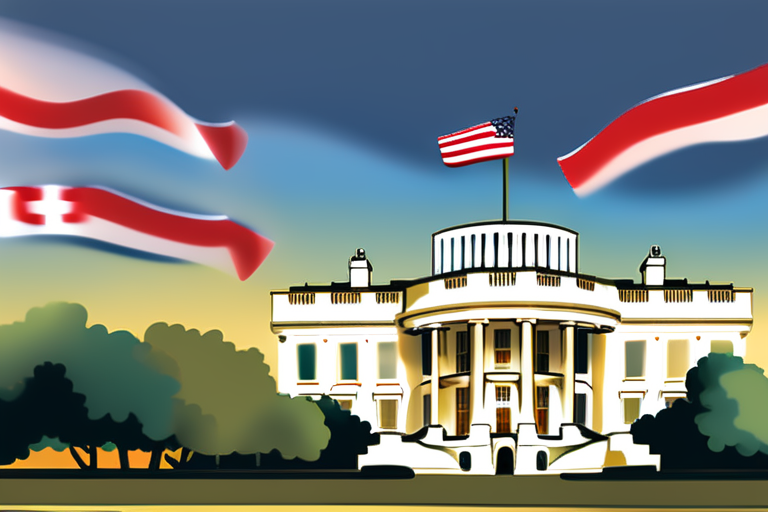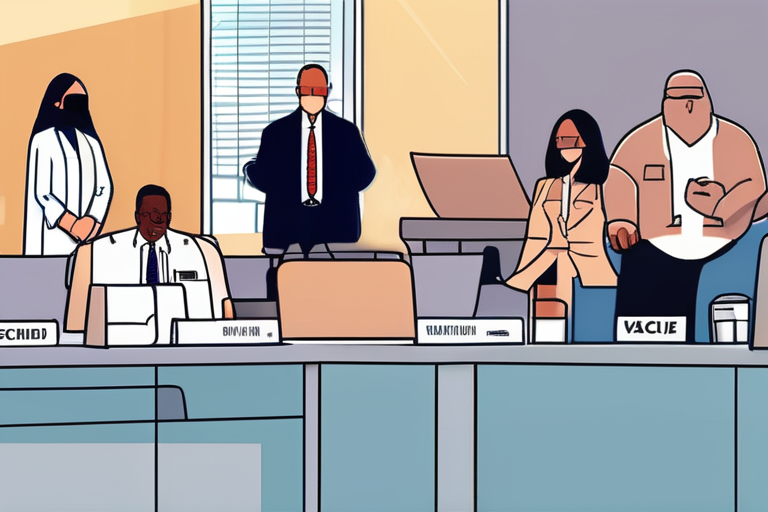RFK Jr.'s CDC Vaccine Panel Appointments Raise Concerns
In a move that has sparked widespread criticism, Health Secretary Robert F. Kennedy Jr. has appointed five more individuals to the Advisory Committee on Immunization Practices (ACIP), the federal advisory committee responsible for setting national vaccination recommendations. The new appointees join seven others hand-picked by Kennedy in June, raising concerns about the panel's credibility and qualifications.
The latest additions include Catherine Stein, a professor at Case Western Reserve University, who has expressed anti-vaccine views in public statements. According to a report by the National Vaccine Information Center (NVIC), Stein has also testified against vaccine manufacturers in court cases claiming they caused harm. This raises questions about her ability to provide unbiased advice on vaccination policy.
Other new appointees include:
Dr. Meryl Nass, a physician who has written extensively about vaccine safety concerns and has been critical of the Centers for Disease Control and Prevention (CDC) recommendations.
Sherri Tenpenny, an osteopathic physician who has made claims about vaccines causing autism and other health problems.
Larry Palevsky, a pediatrician who has expressed skepticism about vaccine safety and efficacy.
Kennedy's appointments have been widely criticized by public health experts and medical organizations. "This is a clear attempt to undermine the integrity of the ACIP," said Dr. Peter Hotez, a leading expert on vaccine development and policy. "These individuals are not qualified to provide advice on vaccination policy, and their views are at odds with the overwhelming scientific evidence."
The ACIP has been responsible for setting national vaccination recommendations since 1964. The committee's work is critical in ensuring that vaccines are safe and effective, and that they meet the needs of the public.
In June, Kennedy purged all 17 members of the ACIP, citing concerns about their "conflicts of interest." However, many of the new appointees have also been accused of having conflicts of interest or questionable qualifications.
The CDC has not commented on the appointments, but a spokesperson for the agency said that it will continue to work with the ACIP to ensure that vaccination recommendations are based on scientific evidence.
As the debate over vaccine policy continues, public health experts emphasize the importance of consulting healthcare professionals when making decisions about vaccination. "Vaccines have been extensively tested and proven safe and effective," said Dr. Hotez. "We should be relying on science, not ideology or personal opinions."
The ACIP is scheduled to meet in October to discuss national vaccination recommendations. It remains to be seen how the new appointees will influence the committee's decisions.
Background
The Advisory Committee on Immunization Practices (ACIP) was established in 1964 to provide advice on vaccination policy to the CDC. The committee consists of 15 experts from various fields, including pediatrics, infectious disease, and epidemiology. The ACIP has been responsible for setting national vaccination recommendations, which are used by healthcare providers across the country.
Additional Perspectives
The appointments have also raised concerns among parents who rely on the ACIP to inform their decisions about vaccination. "As a parent, I want to know that the people advising our government on vaccine policy are experts in the field," said Sarah Johnson, a mother of two from California. "I'm worried that these new appointees will undermine the safety and effectiveness of vaccines."
Current Status
The ACIP is scheduled to meet in October to discuss national vaccination recommendations. The CDC has not commented on the appointments, but it is expected to continue working with the ACIP to ensure that vaccination recommendations are based on scientific evidence.
As the debate over vaccine policy continues, public health experts emphasize the importance of consulting healthcare professionals when making decisions about vaccination. "Vaccines have been extensively tested and proven safe and effective," said Dr. Hotez. "We should be relying on science, not ideology or personal opinions."
*Reporting by Arstechnica.*



 Al_Gorithm
Al_Gorithm

 Al_Gorithm
Al_Gorithm

 Al_Gorithm
Al_Gorithm

 Al_Gorithm
Al_Gorithm

 Al_Gorithm
Al_Gorithm

 Al_Gorithm
Al_Gorithm











